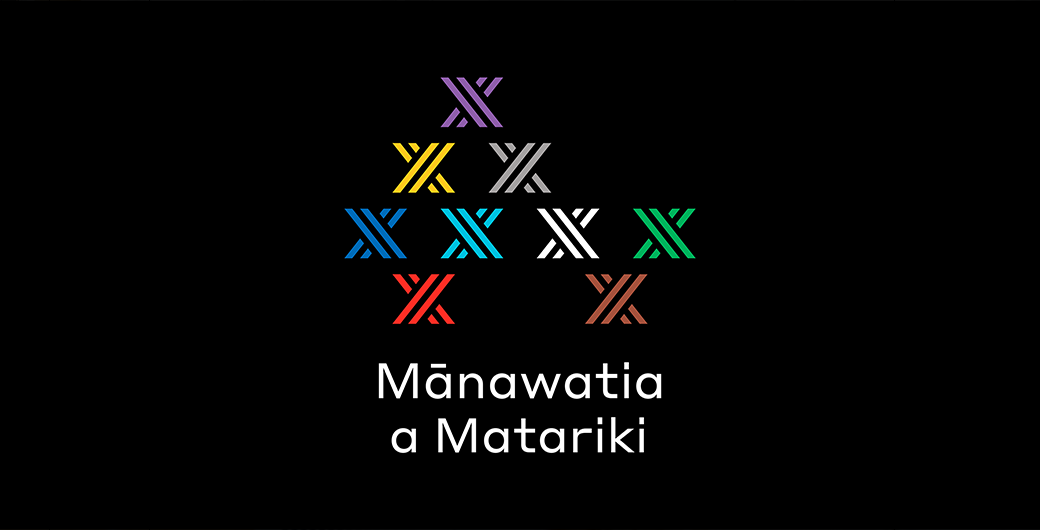
For the first time this year, Aotearoa New Zealand will have an official public holiday to celebrate the Māori festival of Matariki, on Friday 24 June. The festival began on 21 June and is a time of renewal and celebrations which can last up to three days and focuses on song, music, dance, food and family.
Matariki is the Māori name for the star cluster known in Europe as the Pleiades, which becomes visible in the Southern Hemisphere in June/July. Matariki follows a lunar calendar system and, just like Easter, changes dates each year.
Across Aotearoa New Zealand the event is being celebrated with festivals that bring communities together. This year Ngāti Whātua Ōrākei will be iwi manaaki (the host iwi) for the Matariki Festival held in Auckland.
Astronomy Professor Rangiānehu (Rangi) Mātāmua (Tūhoe) is a researcher and custodian of Māori traditions around Matariki. He says that the festival is one for all New Zealanders to embrace.
“Every single person who lives in Aotearoa today descends from people who used the stars to tell time, to navigate, to be connected,” he says.
To help people understand and connect with the new holiday, the advisory board has divided the principles of Matariki into three categories: Matariki Hunga Nui, Matariki Ahunga Nui and Matariki Manako Nui.
Professor Mātāmua said the principles were about remembering those who have passed, celebrating the present and planning for the future, underpinned by values and activities like collectivity and sharing, environmental awareness and feasting.
Te Papa Tongarewa/Museum of New Zealand has more information on how to celebrate Matariki and the traditions behind the festival. Here’s another list of tips to help you celebrate Matariki if you are not sure where to start.
Matariki can mean either ‘the eyes of god’ or ‘little eyes’, and while different traditions are practiced by different iwi (tribes), up to nine stars are acknowledged.
- Matariki is the star that signifies reflection, hope, our connection to the environment, and the gathering of people. Matariki is also connected to the health and wellbeing of people and is also the mother of the other stars in the cluster.
- Waitī is associated with all fresh water bodies and the food sources that are sustained by those rivers, streams and lakes
- Waitā is associated with the ocean, and all food sources within it.
- Waipuna-ā-rangi is associated with the rain.
- Tupuānuku is the star associated with everything that grows within the soil to be harvested or gathered for food.
- Tupuārangi is associated with everything that grows in the trees: fruits, berries, and birds.
- Ururangi is associated with the winds.
- Pōhutukawa is associated with those that have passed on since the last rising of Matariki.
- Hiwa-i-te-rangi is associated with your dreams, desires and wishes, for the coming year.
Traditionally Matariki was celebrated by gathering with whanau (family) and reflecting on the past. Matariki’s connection with the stars provided an opportunity for families to remember their whakapapa (genealogy) and those ancestors who had passed away to the heavens. Offerings were made to land-based gods who would help provide good crops, and new trees were planted to signal new beginnings.
Matariki followed the harvesting of crops when the pātaka (food storehouses) were full, freeing up time for family and leisure. These festivities included the lighting of ritual fires, the making of offerings, and celebrations of various kinds to farewell the dead, to honour ancestors, and to celebrate life. The appearance of the stars was used to determine how successful the following harvest would be. The brighter the stars, the more productive the crop.
Today, Matariki celebrations take many forms across Aotearoa New Zealand, and all peoples across the motu (country) have the opportunity to celebrate, show respect for the land they live on, and to share the Matariki tradition.
ANZSOG wishes you Mānawatia a Matariki (Happy Māori New Year) wherever you are.
